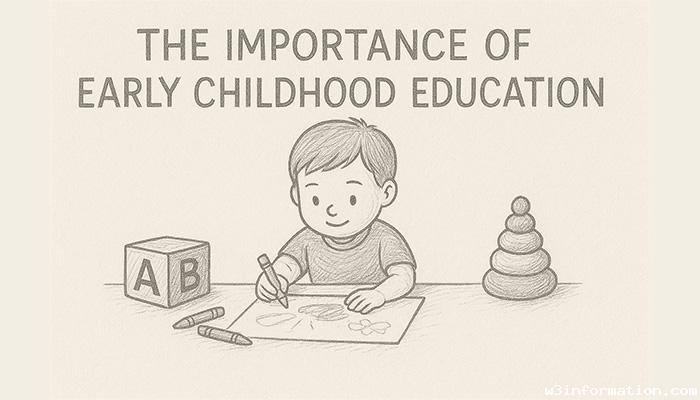The Role of Nature vs Nurture in Personality Development
Personality development emerges from an intricate combination of biological elements alongside environmental conditions and personal experiences. Psychologists and researchers have been fascinated by the nature versus nurture debate for many years. The blog investigates the development of personality through genetic predispositions and environmental experiences while presenting significant theories and scientific findings.
Understanding Nature and Nurture
2.1 Defining Nature in Personality Development
Nature represents genetic characteristics inherited from biological parents which impact key human traits including temperament and intelligence. Genetic material serves as the foundational design for multiple personality characteristics.
2.2 Defining Nurture in Personality Development
The concept of nurture includes elements such as upbringing and education as well as cultural influences and life experiences. Environmental factors shape human behaviors as well as foundational beliefs and values throughout a person's life.

Theories Supporting Nature’s Role
3.1 Biological Determinism
Biological determinism holds that genes serve as the fundamental basis for personality traits. Research into behavioral genetics shows that personality traits such as extraversion and neuroticism possess substantial genetic influence.
3.2 Twin and Adoption Studies
Scientific studies using identical twins and adopted children demonstrate strong genetic influences on personality development. The pronounced personality similarities between identical twins who grow up separately demonstrate the strong genetic influence.
3.3 Influence of Neurobiology
The configuration of brain anatomy along with neurochemical processes plays a critical role in shaping personality characteristics. Personality traits including impulsivity and emotional control are affected by differences in the prefrontal cortex structure and neurotransmitter concentrations.
Theories Supporting Nurture’s Role
4.1 Behaviorism and Environmental Learning
According to behaviorists personality development results from reinforcement processes and conditioning techniques. Childhood experiences that are positive or negative play a major role in shaping both behavior patterns and habits.
4.2 Social Learning Theory
Albert Bandura’s social learning theory demonstrates how personality development relies on the mechanisms of observation and imitation. Children observe caregivers and their peers as well as societal norms to learn behavior patterns.
4.3 Cultural and Societal Influences
Personality traits including individualism and collectivism as well as gender roles emerge through cultural influences. Behavioral patterns and self-perception form as a result of societal expectations and established social norms.
Nature and Nurture: An Interdependent Relationship
5.1 Gene-Environment Interaction
Personality traits develop through the combined effects of genetic predispositions and environmental triggers. Supportive environments can transform a naturally introverted person into a more sociable individual.
5.2 Epigenetics and Personality
Epigenetics examines the way environmental elements modify genetic expression. Environmental elements like stress and nutrition along with life experiences can either trigger or inhibit genetic predispositions which shape personality development.
5.3 Critical Periods in Development
Personality formation occurs predominantly during specific developmental stages with early childhood being one of these essential periods. Environmental factors wield greater influence over trait development during these critical periods.
Case Studies and Research Insights
6.1 Longitudinal Studies
Research that follows people from their early years into adulthood demonstrates the complex interactions between genetic factors and environmental influences which shape personality stability and transformation over time.
6.2 Cross-Cultural Studies
Personality studies show that environmental factors produce different personality traits across various cultures even when genetics remain constant.
6.3 Real-Life Examples
The interaction between genetic predispositions and environmental factors becomes evident when examining the personality traits and behaviors of both historical figures and modern-day individuals.
Implications for Personal Growth and Development
7.1 Understanding Individual Differences
Understanding nature and nurture helps people develop empathy and respect for the diverse personalities they encounter.
7.2 Applications in Education and Parenting
Understanding nature and nurture helps educators and parents establish environments that develop beneficial traits and reduce genetic susceptibilities.
7.3 Enhancing Self-Awareness
Awareness of personality-influencing elements strengthens self-recognition which enables people to utilize their abilities while working through their difficulties.
Conclusion
Personality development emerges from the interplay between genetic inheritance and environmental influences which operate together in a dynamic system. Genetic predispositions establish basic personality traits which are then developed and tailored by environmental experiences throughout life. The acceptance of this relationship complexity enables us to gain deeper insights into our own nature and that of others which promotes personal development and creates stronger bonds within society.
 Top 10 Comfort Foods to Try This Winter
Top 10 Comfort Foods to Try This Winter
 Top 10 Christmas Destinations Around the World
Top 10 Christmas Destinations Around the World
 Navigating Adolescence: Tips for Parents and Teens
Navigating Adolescence: Tips for Parents and Teens
 How to Start a DIY Craft Project on a Budget
How to Start a DIY Craft Project on a Budget
 How to Build Strong Family Bonds in the Digital Age
How to Build Strong Family Bonds in the Digital Age
 The Importance of Early Childhood Education
The Importance of Early Childhood Education